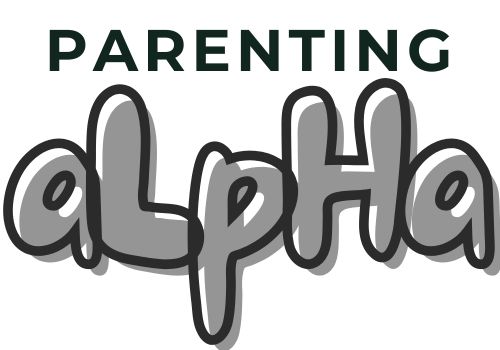Attention deficit and hyperactivity disorder (ADHD) in children & adults describe a mental health dysfunction in the brain where they consistently fail to pay attention, are unnecessarily active, and act impulsively.
Children with ADHD are inattentive, cannot stay calm, and lack social/emotional self-control.
They may seem to be doing the same mistakes over and over, and frankly, will frustrate their peers and everyone around them.
A person with ADHD has differences in brain development and brain activity that affect attention, the ability to sit still, and self-control. ADHD can affect a child at school, at home, and in friendships.
Kids Health
Interestingly, almost every child will display symptoms similar to ADHD during early childhood. Yes, it is normal for children to exhibit a lack of attention, become impulsive, and hyperactive.
They act this way because they are young and in a haste to explore the world they see ahead of them. They are not held back by adult insecurities, and relish the world the way it is meant to be.
Where they go wrong, it is because they have not yet matured to handle life and emotional challenges the way adults do. They will however get better with time, after they work on their executive functioning skills. (More about this later)
ADHD and age ….
ADHD is common before the age of 12, much as it may begin to show early on, around the 3rd year. It is twice as common in boys as in girls, and instances of the disorder affect close to 9% of children and 3% of adults around the world.
In the US alone, 8.8% of children between 3 – 17 years were diagnosed with the condition as of 2019. Between them, boys stood at 11.7% and girls at 5.7%.
Many times, the condition is often only diagnosed later in life, much as it has been present all along. About 70 out of 100 children will continue to show ADHD symptoms in their teen years, but this number may reduce to 50 when they reach adulthood.
Adults and ADHD
In a study published in the American Journal of Psychiatry in August 2021, 90% of children with ADHD will continue to show symptoms when adults.
Although intermittent periods of remission can be expected in most cases, 90% of children with ADHD in the Multimodal Treatment Study of ADHD continue to experience residual symptoms into young adulthood.
SienceDaily
During adulthood, ADHD may impact one area of life more than others, e.g., relationship, work, etc. This is often because older people somehow learn to control other more visible symptoms of ADHD.
Hyperactivity and most external symptoms may reduce with age, but the inner more emotional symptoms will always persist. These include restlessness, mood swings, impulsiveness, and inattention, and these may live with them throughout life.
Of course, the above symptoms may happen due to other emotional challenges such as anxiety and depression.
When ADHD is suspected, a psychotherapist with experience in ADHD may want to trace its existence back to childhood. Additional tests are helpful in confirming the patient is not suffering from other ailments.
People who don’t have ADHD, or don’t know its challenges, may not understand their friends and colleagues with the condition, and may not empathize with them.
Symptoms of ADHD in children
The symptoms of ADHD can be categorized in three areas: poor attention span, excess activity, and impulsive behavior:
– Poor attention span:
Your child with a poor attention span will
- have trouble focusing and listening
- is easily distracted
- does not always listen to instructions, directions, etc.
- is forgetful
- is unable to complete tasks
- daydreams a lot
- loses things
– Hyperactivity:
Your hyperactive child
- climbs up things at the wrong time and place
- is fidgety and restless where calmness is needed
- cannot sit still
- is hasty
- is disruptive
- makes careless motor mistakes
- is noisy when playing
- easily gets bored
– Impulsive behavior:
Your child who is impulsive
- does things without thinking much
- interrupts meetings, class and organised arrangements
- does not ask for permission
- grabs things that belong to others
- is impatient, say in a queue or mealtimes
- does risky things that may lead to injury and other consequences
- is emotionally intense
In addition, your child will have
- trouble multitasking
- low frustration tolerance
- bad temper
- difficulty dealing with stress
The symptoms listed above vary depending on the environment, parental indulgence, and of course, age.
At an early age, especially for preschoolers, the symptoms may not be clear, because all children appear engaged and active, as per educational demands at that time.
Through the teenage years, the symptoms of inattention may just about spike.
Symptoms of inattention tend to become more noticeable when a child gets older, particularly after entering grade school, which requires increasing demands for sustained focus.
Banaschewski T, Becker K, Döpfner M, Holtmann M, Rösler M, Romanos M. Attention-Deficit/Hyperactivity Disorder: A current overview. Dtsch Arztebl Int. 2017;114(9):149-159. doi:10.3238/arztebl.2017.0149
ADHD and executive functioning skills
The symptoms of ADHD and executive functions tend to overlap. This is because ADHD symptoms point to problems with executive functions.
Much as this is true, the two conditions are assessed separately.
Whereas ADHD is a medical condition arising from a clinical diagnosis that requires treatment, weaknesses with executive functions refer to poor regulation and management skills in the brain.
ADHD is a biologically based disorder and a developmental impairment of executive functions – the self-management system of the brain. While most people with ADHD will experience many areas of executive function impairment, people can have executive dysfunction without ADHD.
Additude Mag
Good regulatory and management skills (executive functions) allow children and adults to control their actions and behavior using self-control, cognitive flexibility, and working memory skills.
The executive functions are higher-level mental skills that help us manage and regulate our actions, emotions, and tasks. They are helpful skills needed to stay focused, recall timely information, stay calm, remain emotionally stable, and self-aware.
The good news is that weaknesses with executive functions can be sorted out with parental guidance at home through scaffolds, skill-building, and support from collective effort of the community.
When a child battles weaknesses with executive functions, the signs similar to ADHD will go away! Also true, mastering executive functions can help children develop better control of ADHD, by seeking early professional help.
As a parent, you should only become worried when these behavioral patterns increase in intensity, persist for periods stretching beyond six months, and become ‘obviously’ noticeable!
These are usually accompanied by defiant behavior that persists over time.
What causes ADHD in children?
The causes of ADHD are not yet ‘clearly’ understood by scientists, but generally relate to the functioning of the brain.
Still, the following are common risk factors that can predispose children to ADHD. It could be one, or a combination of factors. For example, genetic defect, in addition to premature birth, are factors that can predispose your child to ADHD.
– Genetics & heredity
While no particular gene has been identified to cause ADHD, studies have shown a genetic link that runs in families for people with the disorder. A child with ADHD is more likely to have a parent or closer relative with the same. Over 30% of close relatives (dad, mom, sister, brother) to a child with ADHD should also be ADHD positive. That is why diagnoses in both children and parents are done during the same clinical visits.
– Brain damage and structure
Studies have shown that serious injury to the parts of the brain associated with ADHD, i.e. through a bad fall or something else, may just be the reason for the disorder. Sometimes, critical areas of the brain, such as the prefrontal cortex, are smaller in people with ADHD.
– Premature birth or low birth weight
Children born prematurely, especially before the 37th week of pregnancy, and those born with extremely low birth weight, have a higher chance of developing ADHD.
– Environmental factors
Child exposure to toxins like lead can cause ADHD. Lead is present in paint in very old houses, inclusive of old furniture and metals.
– Exposure to drugs during pregnancy
Exposure and abuse of drugs, alcohol, smoking, and infections during pregnancy can also increase the likelihood that a child may develop ADHD.
– What else?
Sometimes, the disorder is caused due to problems within the nervous system, epilepsy, bad dietary choices, and extreme stress during pregnancy.
How is ADHD diagnozed?
Your doctor with experience in ADHD will want to confirm that ADHD was present even before the age of 12. He will also want to find out
if they have had at least six persistent symptoms of inattention and/or six persistent symptoms of hyperactivity-impulsivity present for at least 6 months.
NIH
Furthermore, he will want to find out if these symptoms have been consistent in more than one setting, let’s say at home, school, with relatives or even with friends.
During evaluation proceedings, the doctor will do the following according to National Institute of Mental Health:
- Examine the child’s mental health and medical history.
- Ask permission to talk with family members, teachers, and other adults who know the child well and see them in different settings to learn about the child’s behavior and experiences at home and school.
- Use standardized behavior rating scales or ADHD symptom checklists to determine whether a child or teen meets the criteria for a diagnosis of ADHD.
- Administer psychological tests that look at working memory, executive functioning (abilities such as planning and decision-making), visual and spatial skills, or reasoning skills. Such tests can help detect psychological or cognitive strengths and challenges as well as identify or rule out possible learning disabilities.
Treatment for ADHD!
Whereas there is no permanent cure for ADHD in children and adults, there are steps and medications you can use to help them manage its extreme side effects.
This involves cooperating with your doctor to try out numerous medications, and probably finding the right treatment combination. In any case, different approaches to treatment may not work the same way for everyone, because different individuals may react differently to the same medication.
1. Stimulants
Stimulants such as Adderal and Ritalin are administered to patients suffering from ADHD, and are helpful for children above 3, teens, and adults.
Stimulants are the most common type of medication used to treat ADHD. Research shows these medications can be highly effective. Like all medications, they can have side effects and require an individual’s health care provider to monitor how they may be reacting to the medication.
NIH
2. Non stimulants
Where stimulants are not effective, doctors usually prescribe non stimulants to help with impulse control and concentration challenges.
3. Anti depressants
Elsewhere, your doctor may prescribe antidepressants to treat cases of anxiety and depression due to ADHD.
4. Therapy & lifestyle changes
In addition to the above medications, other activities can greatly help reduce the symptoms and effects of ADHD. Behavioral, cognitive, family, and marital therapy can be used to manage and bring the condition under control.
Activities such as frequent exercise, good nutrition, and healthy sleep can facilitate a healthy lifestyle for ADHD patients.
Should you be worried about ADHD in children?
Of course, every parent is worried by having to deal with a child with extreme behavioral challenges. With the right treatment from the right professionals and medication, however, the situation can be brought under control.
Still, the following can happen to children and adults with serious instances of ADHD:
- Poor performance in class
- Poor social life
- Poor performance at work
- Numerous challenges in relationships
- Trouble with the law due to accidents, fights, missed tasks etc
- Alcohol and substance abuse
- Smoking
- Low self esteem
- Anxiety and depression
In conclusion
Much as ADHD is real, children and adults who suffer from it are actually normal people. They are intelligent, creative, and often outperforming others in many tasks.
In addition, children with ADHD are not deliberately rude or defiant, or stubbornly refusing to listen to instructions.





Leave a Reply